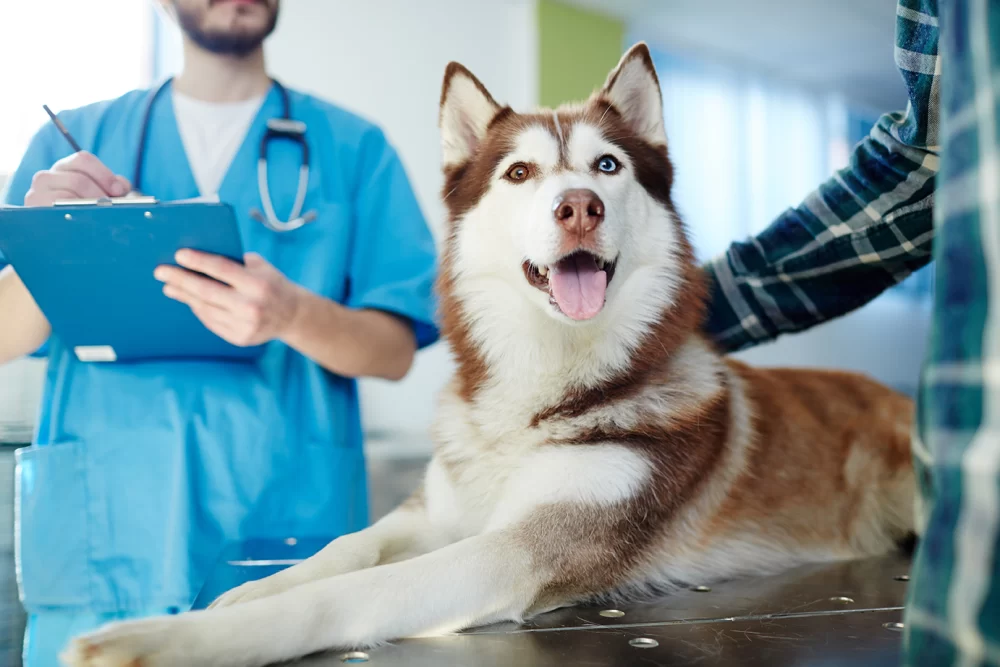Understanding Pet Stress at the Vet
Visiting the vet can be a stressful experience for both pets and their owners. Pets, especially those who are not used to the environment, can become anxious due to unfamiliar smells, sounds, and the handling they receive. Understanding the sources of stress at the vet is the first step in addressing your pet’s anxiety. Some common causes include the fear of unfamiliar environments, past negative experiences, or even the anticipation of medical procedures.
Creating a Calm Environment Before the Visit
Setting the tone before the visit is crucial. One of the best ways to reduce your pet's stress is to get them comfortable in a familiar setting before heading to the vet. Try these strategies:
Create Positive Associations
Incorporate the vet visit into your pet’s routine in a non-threatening way. For example, you can drive by the vet’s office occasionally without going inside. This helps your pet get used to the surroundings in a less intimidating way.
Bring Comfort Items
Bringing your pet’s favorite blanket or toy to the vet can help provide a sense of security. Familiar smells can be soothing and help keep your pet calm during the visit.
During the Visit: Managing Your Pet’s Anxiety
Once you're at the vet, it's essential to stay calm yourself. Pets are very perceptive to their owners' emotions, so your calm demeanor can help reassure them. Here are a few additional tips:
Keep Your Pet Comfortable
When you arrive at the vet's office, let your pet take their time adjusting to the space. Avoid pulling them too quickly through the door or forcing them into unfamiliar areas. Allow them to sniff around and get comfortable at their own pace. This can reduce feelings of confinement and stress.
Use Calming Products
Many pet owners find that using calming products, such as pheromone sprays or calming collars, can be beneficial. These products help create a sense of calm by mimicking the natural scents that pets find comforting.
Dealing with Specific Anxieties
Every pet reacts differently to stressful situations, so it's important to recognize and address specific anxieties your pet may have. Some pets may be fearful of the car ride, while others may be more concerned about the actual examination.
Car Anxiety
If your pet experiences anxiety during car rides, try to make the car a more familiar space. Start with short trips to places your pet enjoys, gradually increasing the distance. You can also use a pet seatbelt harness to keep them secure and prevent additional stress from movement.
Fear of the Vet Exam
Some pets may associate the vet visit with discomfort due to previous exams or treatments. If this is the case, you can work with the vet to desensitize your pet to the exam process. Your vet may be able to take extra steps to make the experience more gradual and less overwhelming.
After the Visit: Reinforcing Positive Experiences
Once the visit is over, it's important to reward your pet for their bravery. Offering praise, treats, and affection can help reinforce the positive aspects of the experience. Over time, this positive reinforcement can help your pet associate vet visits with good things, reducing stress in future visits.
Maintain Regular Vet Visits
Frequent visits to the vet, even when your pet is healthy, can help desensitize them to the environment. Just like any other fear, consistent exposure to the vet’s office can gradually reduce anxiety over time.
Choosing the Right Vet for Your Pet
Finally, choosing a vet who is gentle and understands your pet’s unique needs can make a huge difference. At Hidden Brook Veterinary, we strive to provide a comfortable, calm environment for your pet, helping to minimize stress during each visit. Whether you're looking for a general checkup or specific treatment, finding a vet who can cater to your pet's emotional needs is key to a successful visit.
Making the Most of Your Vet Relationship
Building a strong relationship with your vet can make all the difference in your pet’s care. A compassionate and understanding vet will not only treat your pet’s health needs but also work with you to minimize any stress during visits. Don’t hesitate to talk to your vet about your pet’s anxiety and explore ways to make future visits smoother.












